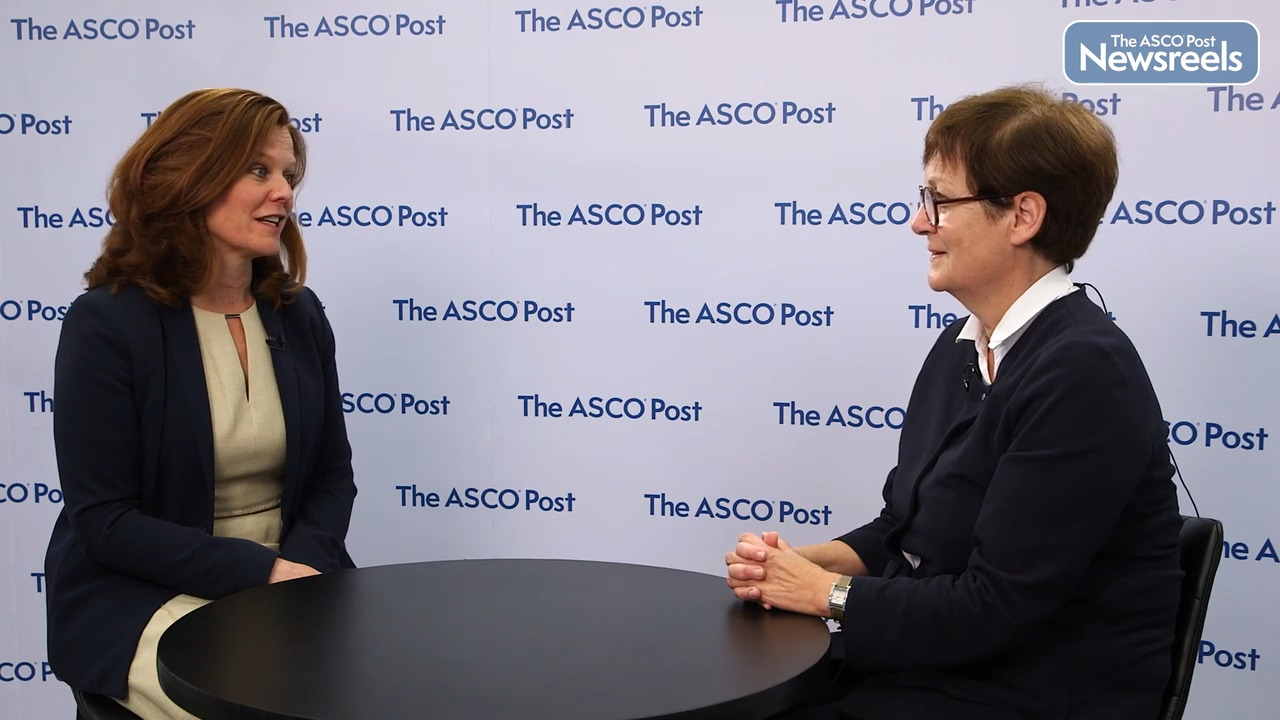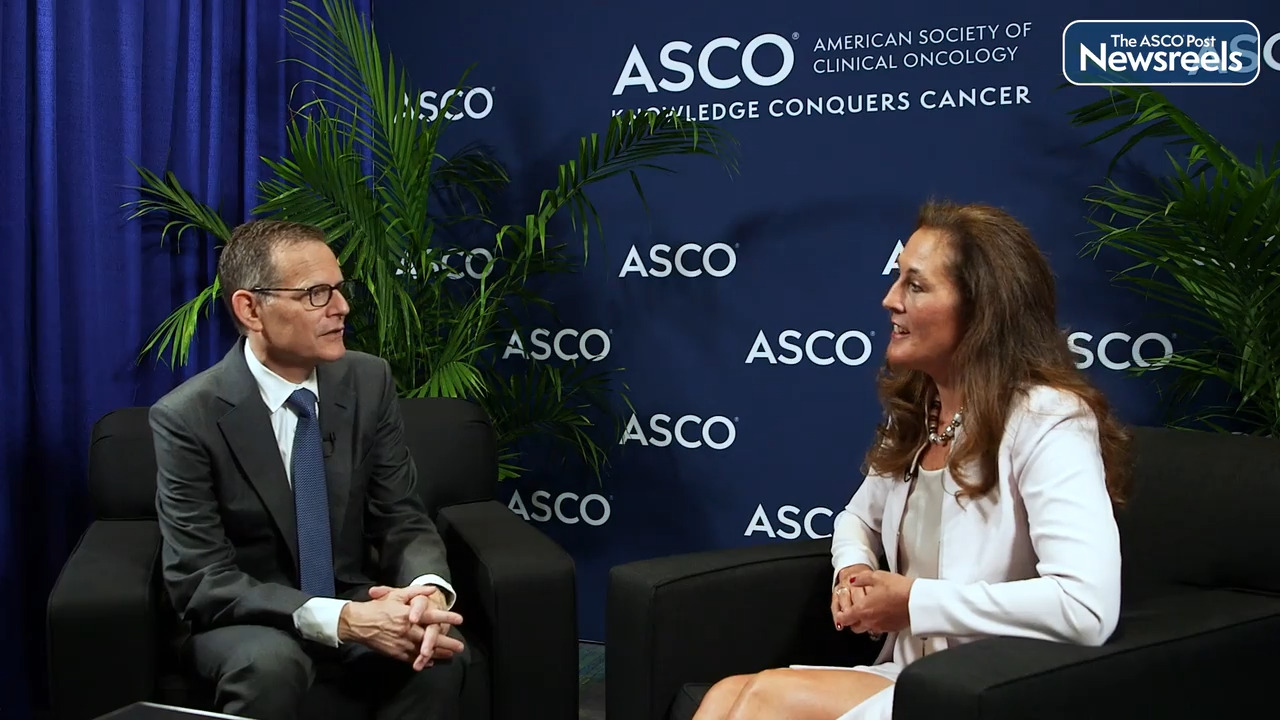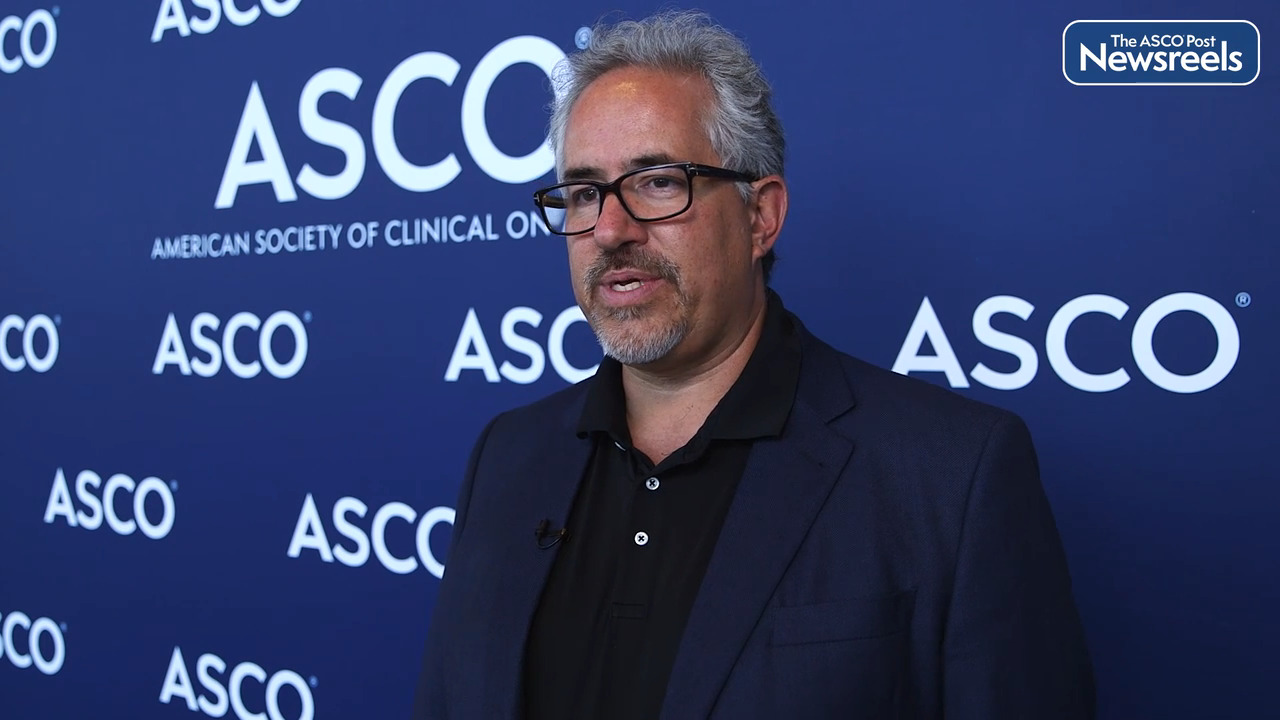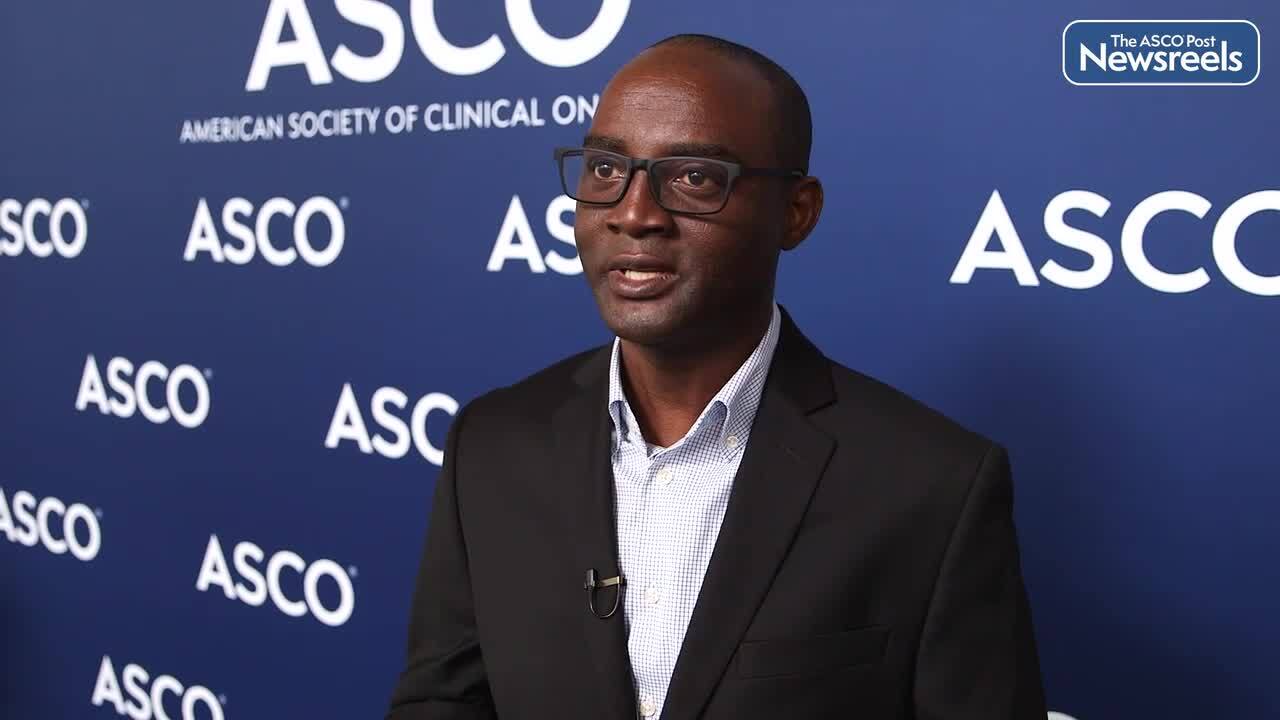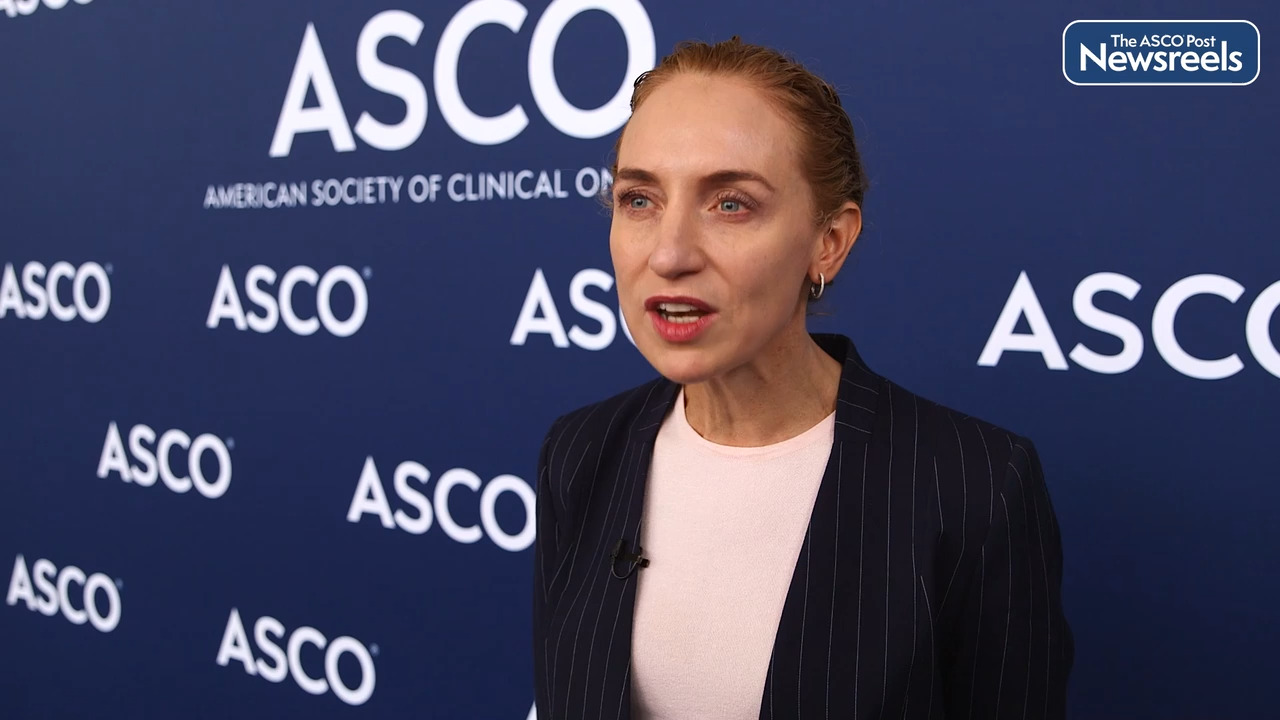Transcript
Disclaimer: This video transcript has not been proofread or edited and may contain errors.
The rEECur trial is the first randomized control trial of chemotherapy in relapsed and refractory Ewing sarcoma. Before we set up the study, there was obviously no randomized trials, there were very weak data from a series of small retrospective or early phase studies, but as a result, we had no standard of care and there was no defined consensus backbone for us to develop new trials of targeted therapies.
We set up the rEECur trial as a multi-arm, multi-stage, simultaneous phase II, phase III randomized control trial of chemotherapy, and this is a very efficient way to study multiple regimens in a very rare patient population. We initially had four chemotherapy arms. We dropped the gemcitabine docetaxel arm in 2018 and the irinotecan-temozolomide arm in 2020, both on the basis of worse event-free survival and worse imaging response. The results are presented at ASCO 2022, with the phase III comparison between the two other arms, which are topotecan/cyclophosphamide and high-dose ifosfamide.
The primary outcome was event-free survival, and there was a 2 month difference in median event, three survival between 3.5 months for topotecan/cyclophosphamide and 5.7 months for ifosfamide this equated to a 10% difference in 6-month survival, between 37% and 47%. The secondary outcome measure of overall survival also showed a benefit for ifosfamide, with a 5 month difference in median overall survival, with 10.5 months for topotecan/cyclophosphamide and 15.4 months for ifosfamide. Again, that equated to a 10% difference in both 1-year and 2-year survival, so 1-year survival was 45% versus 55%. We also noticed that there was an interaction between age and the treatment arms. So the benefits of ifosfamide were more obvious in children under 14 than in adolescence and adults. This was true, both for event-free and overall survival.
For the secondary outcome of toxicity, the rate of neutropenic fever was similar between both the arms. The patients recruited to ifosfamide had a higher incidence of grade 3 infections, and they also had more renal toxicity and encephalopathy, which were toxicities that we expected, and they were present in 8% and 7% respectively. The other outcome measure that we looked at that we reported was quality of life. And although the quality of life differences were not significant, there was a trend towards improved quality of life in children receiving ifosfamide that wasn't present for children receiving topotecan/cyclophosphamide. There were no obvious trends in adults for quality of life.
In conclusion, in the first randomized trial of chemotherapy, we've now shown that ifosfamide is more effective than topotecan/cyclophosphamide, and in turn, those arms are more effective than the two arms that were dropped earlier. However, the differences between these arms are quite subtle. What we actually need is new drugs and new combinations of therapies to cure more patients. Having said that, these data will be very important in us moving forward, both in terms of counseling patients and parents when they come to clinic about the best treatment, but also in designing trials for the future. The study remains open to the ifosfamide arm, and we've also introduced a carboplatin/etoposide arm, which is another chemotherapy regimen that we use in this setting, and we'll be introducing a TKI arm with lenvatinib in combination with ifosfamide later this year.
